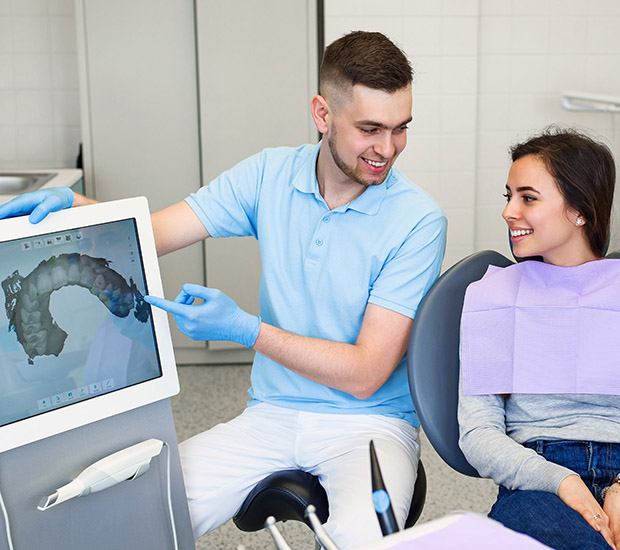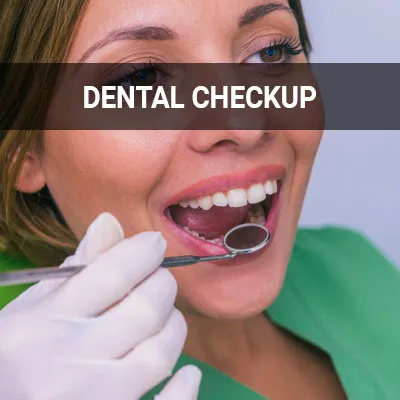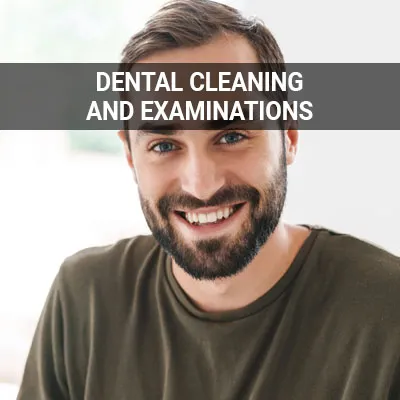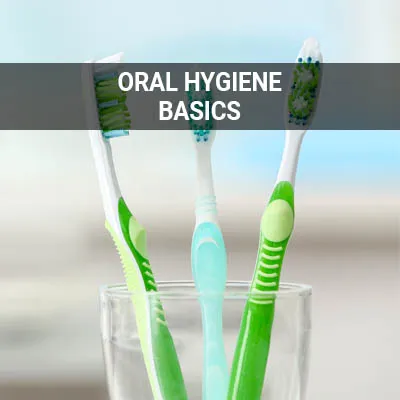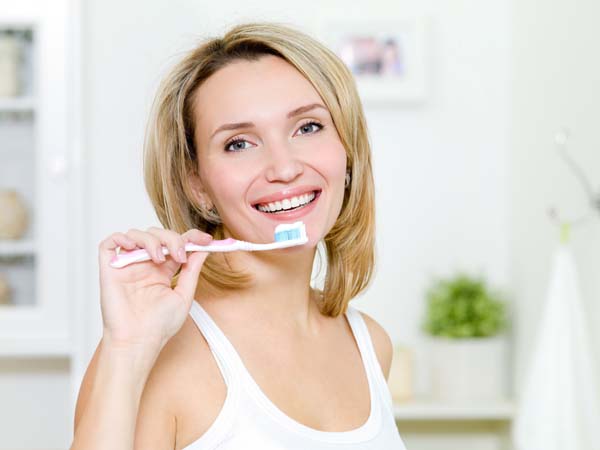Preventative Dental Care Los Angeles, CA
We have all heard from a young age that it is important to brush and floss our teeth twice a day. That is only one aspect of caring for the teeth and keeping them healthy. Preventative dental care also includes regular oral exams, professional cleanings, and routine X-rays along with good lifestyle choices such as proper nutrition and hygiene habits.
If it has been a while since you or your family has seen a dentist, it is time for a checkup. Preventative dentistry is available at Dr. Robert B Tamaki, DDS in Los Angeles and the surrounding area. Call us at (310) 402-0156 to schedule an appointment.
The Importance of Preventative Care
According to the Centers for Disease Control and Prevention (CDC), one in four adults suffers from untreated tooth decay. The longer someone waits to visit the dentist, the more likely they are to develop painful and costly dental problems later on. Preventative dental care lowers the risk of developing cavities, gum disease, and other serious dental problems. It can also help reduce dental problems related to some chronic medical conditions such as diabetes.
Oral health is also connected to the health of the entire body. The mouth is a breeding ground for harmful bacteria as well as the entry point to the digestive and respiratory tracts. Without proper oral hygiene, including preventative dentistry, secondary problems can develop such as respiratory and heart disease.
In addition to reducing a family's risk for other health issues, practicing good preventive dental care can save money. While it may not completely eliminate treatments such as fillings, it can go a long way in reducing the need for costly services. In fact, a study by Cigna concluded that, "Customers who did not receive preventive care experienced a 43% increase to their annual dental costs over the same period of time." This illustrates that individuals who practice regular preventive oral health care and visit their dentist as recommended achieve higher cost savings each year.
“The longer someone waits to visit the dentist, the more likely they are to develop painful and costly dental problems later on.”
When To See the Dentist
Typically, patients should have regular dental check-ups about once or twice a year. However, every patient has their own needs. Some patients may need to visit the dentist more than twice a year. The number of appointments a patient needs to maintain oral health will depend on their health, habits, and medical conditions.
People who are at high risk of dental diseases may need to schedule appointments about every three months. This includes pregnant women, diabetics, smokers, and people with gum disease, a weak immune system, or are cavity-prone. Our team can determine the optimal appointment frequency for each patient.
“The number of appointments a patient needs to maintain oral health will depend on their health, habits, and medical conditions.”
The Ins and Outs of a Dental Cleaning
A routine dental cleaning represents a major component of preventative dentistry. It is also a good time to find out if there are teeth that could use additional attention while brushing or flossing. These appointments typically include a regular checkup with our dentist to examine the teeth, look for signs of oral cancer, and take any necessary X-rays.
A basic dental cleaning includes a physical exam of the entire mouth, which involves using a small mirror to check around the teeth and gums for any signs of inflammation or other concerns. Our staff will then use small scraping tools to remove plaque and tartar from around the gum line and between the teeth. This is followed by a thorough tooth cleaning using a high-powered electric brush and dental flossing. Patients will have their mouth flushed with water as needed throughout the cleaning process.
Deep cleanings use special techniques to get rid of plaque, tartar and bacteria below the gum line and down to the roots of the teeth. This type of cleaning helps prevent gum disease from advancing and causing tooth loss. Antibiotics, either in an oral form or as a gel or rinse, may be prescribed to help fight bacteria. As this type of cleaning goes below the gum line, a local anesthetic is used to numb the gums.
“A routine dental cleaning is a major component of preventative dentistry.”
Check out what others are saying about our dental services on Yelp: Preventative Dental Care in Los Angeles, CA
Lifestyle Choices To Promote Good Oral Health
Healthy lifestyle choices are also an important part of preventative dental care. For example, eating a healthy and balanced diet can promote good oral health and hygiene. Eating a balanced diet provides essential nutrients to promote good teeth and gum health. Fruits and vegetables rich in fiber and dairy products such as cheese, yogurt, and milk are beneficial for oral health. We recommend limiting candies, sodas, and starchy foods that can get stuck in the mouth.
Other decisions that people can make to better their oral health include not smoking or getting oral piercings. Smoking results in more bacterial plaque, leading to gum disease. Infected gums cannot heal since smoking prevents a sufficient amount of oxygen in the bloodstream. According to the Centers for Disease Control and Prevention (CDC), smokers are twice as likely as non-smokers to develop gum disease. People should also avoid oral piercings since complications are relatively common. According to the American Dental Association (ADA), oral piercings can foster periodontal pathogenic bacteria and significantly increase infection risk.
“Eating a balanced diet provides essential nutrients to promote good teeth and gum health.”
Questions Answered on This Page
Q. Why is preventative care important? How can it save you money?
Q. What do routine and deep cleanings involve?
Q. What other preventative services are available?
Q. When should I see the dentist?
Q. What lifestyle choices help promote good oral health?
People Also Ask
Q. What are some of the advantages and disadvantages of dental sealants?
Q. Can sealants protect against cavity-forming bacteria?
Q. What should be included in an at home oral health routine?
Q. How frequently should I get an oral cancer screening?
Q. What is the difference between a dental checkup and a dental cleaning?
Q. What family members may need extra help with their oral hygiene?
Treatments to Consider
In addition to regular checkups and cleanings, a dentist may suggest other services to assist with a family's preventative dental care. These may include fluoride or dental sealants. These services and treatments provide another protective layer to help combat tooth decay.
Topical fluorides strengthen existing teeth, making them more decay-resistant. Many dentists provide these treatments to children under 18. For people who are predisposed to cavities or decay, a special gel for daily home use may be recommended.
Dental sealants are thin, plastic coatings painting on the chewing surface of teeth. They shield the teeth from food debris and bacteria responsible for cavities. The teeth are thoroughly cleaned and then the sealant is applied. It is hardened using a laser or ultraviolet light to fuse it to the teeth. The entire process takes less than an hour.
“In addition to regular checkups and cleanings, a dentist may suggest other services to assist with a family’s preventative dental care.”
Frequently Asked Questions
Q. How are fluoride treatments applied?
A. Fluoride treatments can happen with a brush, cotton swab, rinse, or mouth tray. It takes about 30 minutes for teeth to absorb the fluoride treatment and repair microscopic cavities. Patients will need to refrain from eating or drinking anything during this time.
Q. Are X-rays safe?
A. Yes. While X-rays involve the use of radiation, the levels are very minimal. They are safe for both children and adults.
Q. How do dental sealants prevent cavities?
A. While brushing and flossing are essential, it is sometimes difficult to thoroughly clean the rough surfaces of some teeth. The premolars and molars are especially susceptible to decay and cavities for this reason. Dental sealants form a protective coating over rough surfaces to shield teeth from cavities and decay.
Q. Is preventative dental care important for children too?
A. Preventative dental care is very important for children. While primary teeth are not permanent, they play a significant role in the proper emergence of adult teeth. Preventative dental care can help children protect their teeth for a lifetime of good dental health.
Q. How much does preventative dental care cost?
A. The cost of preventative dental care will depend on the patient's dental insurance. Insurance plans often cover preventative dental treatments. People should contact their insurance provider for more coverage information.
Dental Terminology
Schedule Your Preventative Visit Today
If it's been some time since you've scheduled preventative dental care, call us at 310-402-0156 for more assistance to start the journey to better oral health.
Helpful Related Links
- American Dental Association (ADA). Glossary of Dental Clinical Terms. 2024
- American Academy of Cosmetic Dentistry® (AACD). Home Page. 2024
- WebMD. WebMD’s Oral Care Guide. 2024
About our business, license, and website security
- Dr. Robert B Tamaki, DDS was established in 1985.
- We accept the following payment methods: Cash, CareCredit, Check, MasterCard, and Visa
- We serve patients from the following counties: Los Angeles County
- We serve patients from the following cities: Los Angeles, Santa Monica, Venice, Marina Del Rey, Redondo Beach, Hermosa Beach, Manhattan Beach, and Westchester
- CA (License #DDO-33386). View License Information and Specifics
- National Provider Identifier Database (1568559011). View NPI Registry Information
- Healthgrades. View Background Information and Reviews
- Norton Safe Web. View Details
- Trend Micro Site Safety Center. View Details
Back to top of Preventative Dental Care
